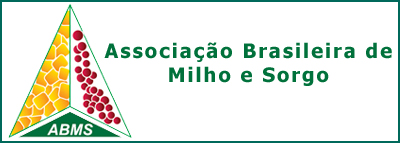SORGHUM GENOTYPES RESPONSE TO INOCULATION WITH PHOSPHATE SOLUBILIZING BACTERIA
DOI:
https://doi.org/10.18512/rbms2020v19e1177Keywords:
Sorghum bicolor, phosphate solubilizing microorganisms (PSB), rock phosphate, plant growth-promoting bacteria (PGPB).Abstract
Sorghum bicolor adapts to phosphorus (P) deficient soils through mechanisms that contribute to its absorption and solubilization, including the association with microorganisms. The direct application of rock phosphate (RP) followed by the inoculation of phosphate solubilizing bacteria (PSB) is a sustainable alternative for P supply to the crops. The aim of this study was to evaluate the effect of PSB inoculation on two sorghum genotypes with different P responses (BR007 - efficient and responsive and SC283 - efficient and non-responsive) cultivated in soil fertilized with RP and triple superphosphate (TSP). The sorghum genotypes were inoculated separately with the Bacillus strains efficient in P solubilization, B116 and B70, and cultivated in different P fertilization sources (TSP, RP, ½TSP + ½RP). The results suggested that the inoculation response was dependent on sorghum genotype, P source and microbial strain. Inoculation of the genotype BR007, significantly increased root biomass and P content under greenhouse, as well as yield and grain P content in the field but no effect was observed on genotype SC283. The use of PSB as bioinoculants in combination with RP is a promising alternative to reduce the use of synthetic fertilizers, contributing for the sustainable sorghum production.
Downloads
Published
How to Cite
Issue
Section
License
Authors retain copyright and grant the journal right of first publication with the work simultaneously licensed under the Creative Commons Attribution License that allows the sharing of work and recognition of the work of authorship and initial publication in this journal.
Authors are able to take on additional contracts separately for non-exclusive distribution of the version of the paper published in this journal (eg, in an institutional repository or publish as a book), with acknowledgment of its initial publication in this journal.
Authors are permitted and encouraged to post their work online (eg, in institutional repositories or on their website) at any point before or during the editorial process, as this may leadto productive exchanges, as well as increase the impact and citation of published work.



